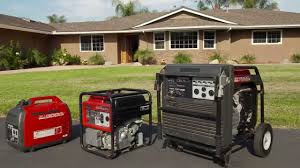
For those affected by these wild storms, some safety tips .....
Generator Safety Tips
- Use proper care. Proper ventilation is critical to reducing the risk of carbon monoxide poisoning from a generator’s engine exhaust. Carbon monoxide (CO) poisoning is a common, serious danger that can cause death if generators are used improperly; this is particularly true when the fuel is not burned completely.
- Placement is key. Never use generators indoors or outside near windows, vents, or air intakes that could allow CO to come indoors.
- Keep other items clear. Maintain plenty of air flow space around the generator.
- Pay attention. Get fresh air immediately if you begin to feel sick, dizzy or light-headed or experience flu-like symptoms.
- Buy CO detector. Because CO is invisible and odorless, it makes sense to buy a CO detector (similar to or sometimes combined in a smoke detector) to warn of rising CO levels.
- “Ground” your generator. Carefully follow all instructions on properly “grounding” the generator.
- Keep the generator dry. Short circuits may occur in wet conditions, which can cause a generator fire. If needed, place the generator under an open canopy–type structure.
- Be prepared. Always keep a fully charged fire extinguisher nearby.
- Leave it to the professionals. To avoid electric shock or electrocution, do not try to fix or otherwise work on a generator.
- Organize your cords. Keep cords out of the way to avoid injury, but keep them in plain view to keep track of cord damage (such as fraying or cuts) that could cause a fire.
- Do not “back feed” power. Do not plug the generator into a wall outlet. Back feeding will put you and others, including utility line workers, at serious risk because the utility transformer can increase low voltage from the generator to thousands of volts.
- Know local laws. Some states have laws making the generator owner responsible for taking steps to make sure that the generator’s electricity cannot feed back into power lines; additionally, owners of commercial, industrial, or residential generators must notify the local utility of their locations.
- Don’t touch. It’s hot. The exterior portions of a generator, even if operated for only a short period of time, can become hot. Avoid touching the generator without protective gear and keep debris clear to avoid a fire.